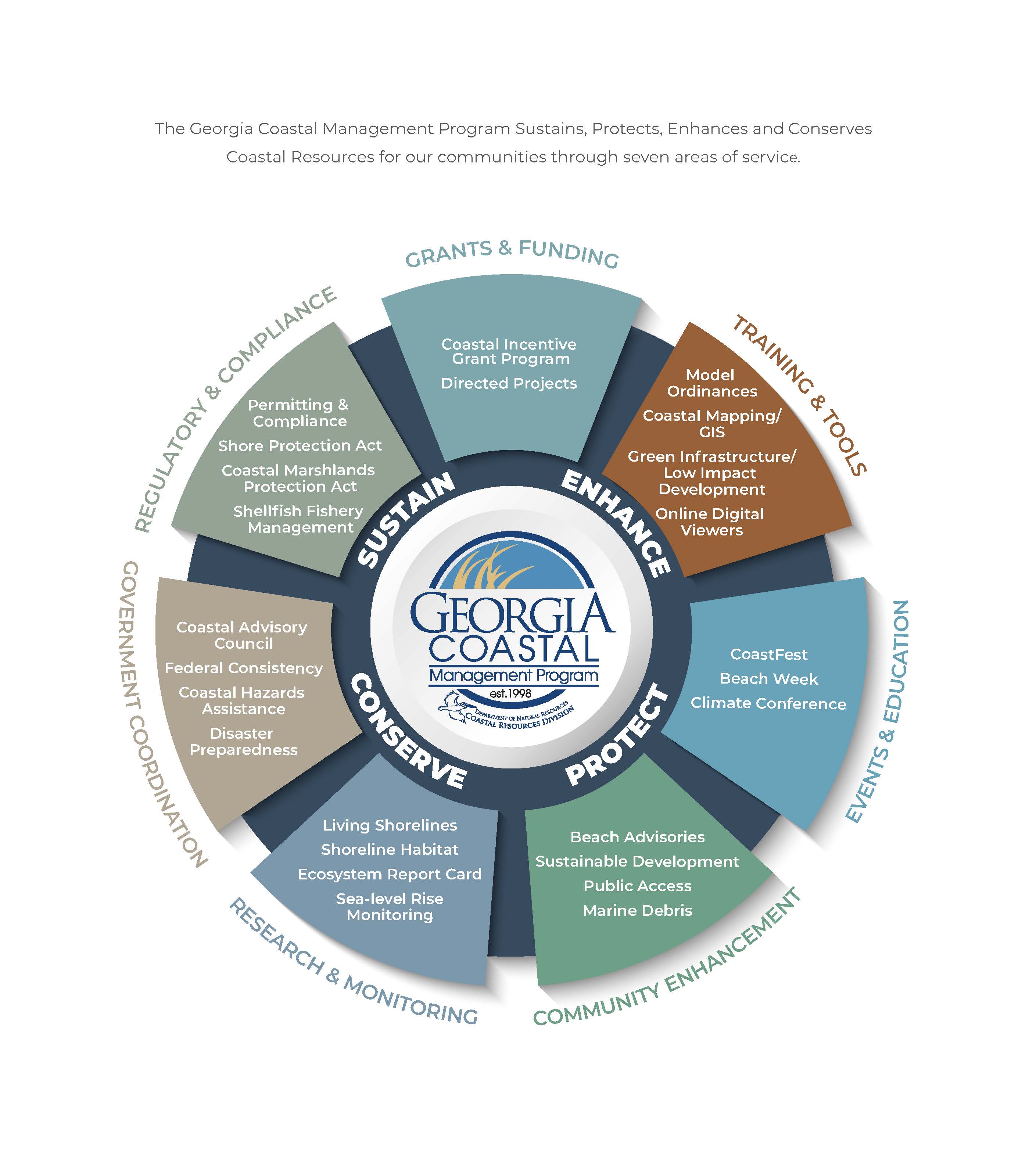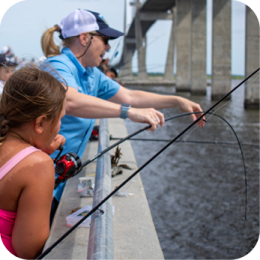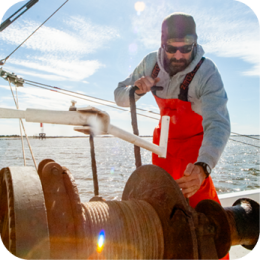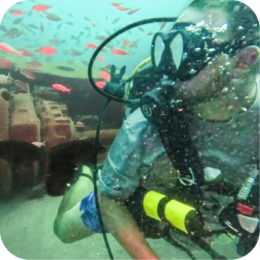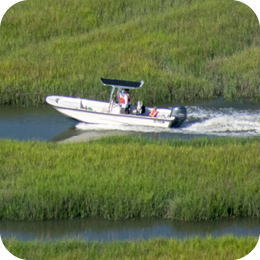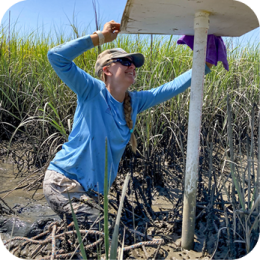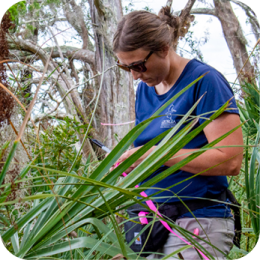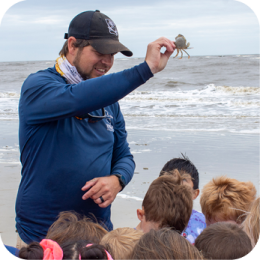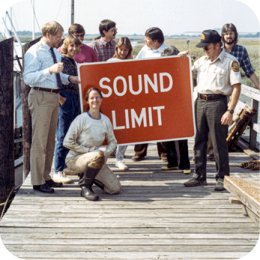It is the mission of the Georgia Coastal Management Program (GCMP) to balance economic development in Georgia's coastal zone with preservation of natural, environmental, historic, archeological, and recreational resources for the benefit of Georgia's present and future generations. The GCMP offers technical assistance to local governments, property owners, developers, and the public to provide expertise on coastal issues, minimize environmental impacts, clarify regulatory requirements, and identify agency contacts. GCMP provides information on Best Management Practices and technical guidance on planning and design as well as information on habitat and endangered species. GCMP serves as a liaison among various agencies and institutions and maintains a list of contacts. GCMP provides forums for local governments, developers, and citizens to discuss potential resource issues and permit requirements with the appropriate agencies. The goals of GCMP Coastal Specialists are to promote sustainable development, to work with local governments to address natural resource issues, and to create a central source of information on coastal management issues.
The GCMP service area includes the eleven coastal counties of Brantley, Bryan, Camden, Charlton, Chatham, Effingham, Glynn, Liberty, Long, McIntosh, and Wayne. Including each of these eleven counties in the Management Program ensures that all of Georgia's coastal population, industry, and resources are addressed. Using county boundaries also simplifies the relationship with local governments and ensures that other programs and agencies in the coastal network can relate to the coastal service area boundaries
The Coastal and Ocean Management Program (COMP) administers the non-regulatory functions of the Coastal Management Program. Its functions include program and grant administration, technical assistance to local governments, outreach and education, facilitation of stakeholder processes, coastal water quality monitoring for beaches and shellfish, and implementation of the Coastal Incentive Grant Program which passes through nearly $1 million annually for local projects and coastal research. The COMP is also the States' lead for the Coastal and Estuarine Land Conservation Program.
For assistance in:
Georgia Coastal Management Program inquiries, please contact Jan Mackinnon at jan.mackinnon@dnr.ga.gov
Green Growth and Sustainable Communities, please contact Kelly Hill at kelly.hill@dnr.ga.gov
Coastal Hazards and Disaster Resiliency, please contact Jennifer Kline at jennifer.kline@dnr.ga.gov
Grants and Contracts, please contact Shy Duncan at shyathia.duncan1@dnr.ga.gov
Living Shorelines, please contact Meghan Angelina at meghan.angelina@dnr.ga.gov
Research and Monitoring, please contact Meghan Angelina at meghan.angelina@dnr.ga.gov
Marsh health and monitoring, please contact Jan Mackinnon at jan.mackinnon@dnr.ga.gov
Federal Consistency requests, please contact Kelie Moore at kelie.moore@dnr.ga.gov
Please click on one of the links below to access the indicated topic of interest:
- Coastal Advisory Council
- Coastal Hazards and Resiliency
- Coastal Management Program Documents
- Intragovernmental Review/Executive Order 123722
- Coastal Management Program Web Maps
- Coastal Non-point Source Program
- Coastal Wetlands
- Research and Monitoring
- Georgia Healthy Beaches
- Coastal Incentive Grant
- Green Growth
- Ecosystem Report Card
- Shellfish and Water Quality Monitoring
- Jekyll Creek Dredging Project
- Flood Literacy
- CRD Brown Bag Lecture Series
Celebrating 20 Years of the Georgia Coastal Management Program
20-Year Program Highlights
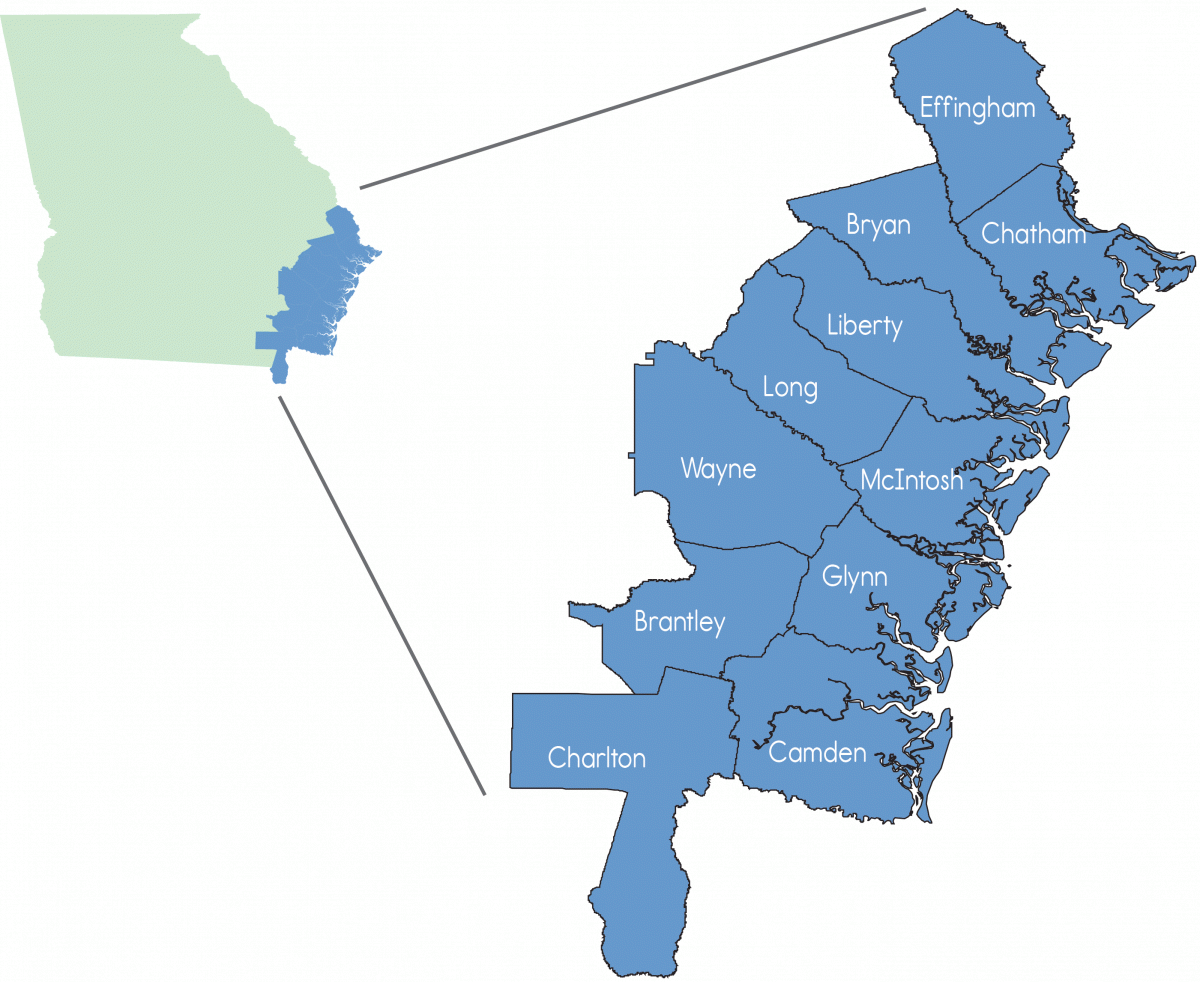
Provide expert technical assistance to local governments and academics on coastal issues helping to identify needs and provide funding through a competitive grant program.
Educate citizens on coastal topics, environmental impacts, and regulatory requirements.
$20 Million in 20 years. These are federal funds awarded to coastal communities through the Coastal Incentive Grant Program.
Leveraged more than $30 million from partners for coastal projects.
Support and enhance public access with more than 100 locations in the coastal zone.
Invested more than $2 million in coastal hazards planning.
